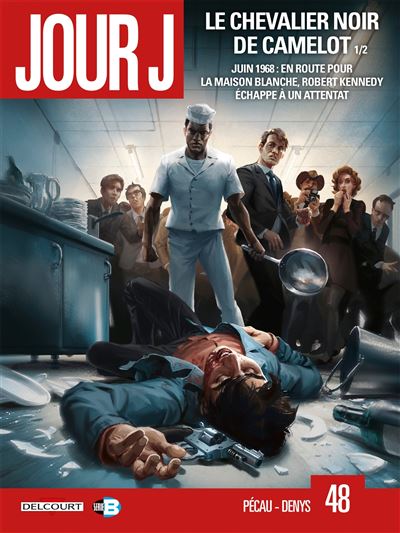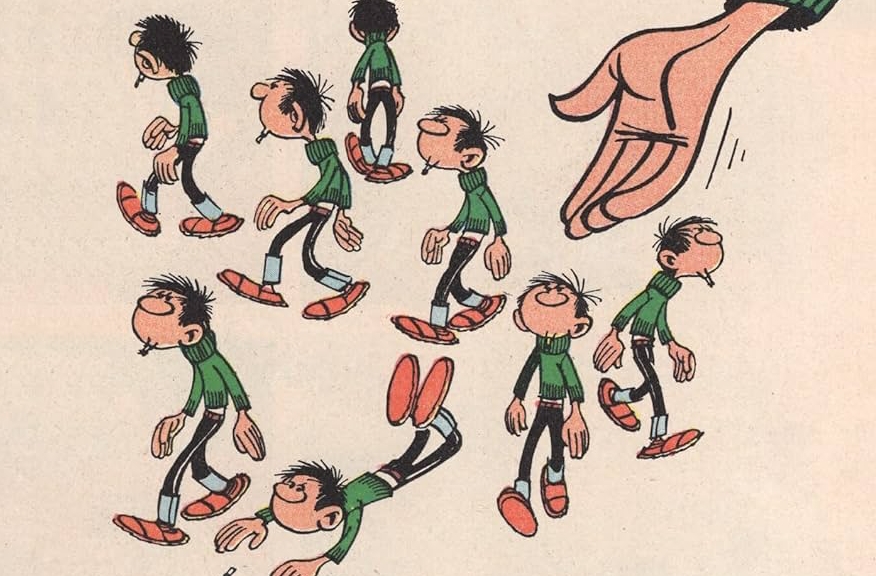On JustFocus, we sometimes come across entertaining books, other funny but in Prison N°5 we are dealing with a necessary book. It is necessary on the one hand for the reader to discover a scandalous situation at the gates of Europe but on the other hand vital for the author because art saved her…
An activist's story
Zehra Dogan, a political activist in favour of autonomy for Kurdistan, is arrested for the second time. However, she is not entitled to any art materials. But the human imagination knows no rung. Dogan uses the back of letters sent by a friend to draw and recount her life in prison. It begins with the events that led to him ending up behind bars. In 2015, negotiations between the Kurdish party, the PKK and the Turkish state broke down and attacks claimed by Daesh bloodied the region. This signal marks the beginning of a wave of violence by the army against Kurdish activists and elected officials. The bodies are not returned to their families. There are not only deaths, but the army is also attacking heritage. To protest against the deprivation of liberty and deaths, cities bristle with barricades. At the same time, municipalities are opting for self-management. Through this very precise reminder, the reader discovers the violence of the Turkish state and understands that it is in parallel a political and nationalist movement. 

Zehra Dogan gives her point of view on the history of Turkey, its rejection of cultural or religious diversity and the history of the PKK in front of the State. The author places herself on the side of the Kurds and libertarian experiments. Through the biography of her fellow prisoners, she describes life in the guerrilla war and does not hide the misogyny of her camp when women decided to fight. Coming from a political activist, the book is a committed testimony that may displease some but will move a large part of readers.
A deprivation of expression
In and out of prison, freedom of expression is curtailed. Dogan was arrested for the first time for publicizing the destruction of the city of Nusaybin after curfew through her drawings. His first imprisonment was related to an exhibition. A very large part of the book is then devoted to his experience in prison until his release at the end of the volume. Through different shots, the reader passes from the doors and then enters the corridor to collective cells. Dogan first shows us her concern by discovering her fellow inmates but very quickly, she shares solidarity between political prisoners. We discover prisons very different from the France. The suffering begins with the cold procedures of entry and then continues with frequent humiliations. Refusals of care are numerous and harassment against LGBTIQ people is systematic. 800 children are currently incarcerated with their mothers. Pages on the abuse suffered by prisoners in the 80s within this same prison are trying. But the prisoners organized the struggle with the meagre means at their disposal and these protests continue today. On a daily basis, the prisoners organize a collective life in self-management and political training courses in the image of their projects abroad.
A raw testimony

Zehra Dogan is a complete artist who takes care of the drawing and the text. The book includes the pages she was able to smuggle through the prison walls. The book is a reflection of this precariousness. The drawing is certainly clumsy but the precision of the line fades in front of the accuracy of the feelings. Dogan does not seek to illustrate by realism but transmits his terrors, his political ideas (red is very present). The colors are few because Dogan has few tools. These pages alternate between texts next to the illustrations and some bubbles. We feel that this is a special book for Delcourt thanks to the attention paid to manufacturing. Each page from the cover to the last page reproduces the craft paper that Zehra Dogan used to write this book. There are these letters in Turkish or Kurdish, a map at the beginning and, at the end, very complete notes and an afterword explaining how this book came about.
Prison N°5 is the testimony of an imprisoned activist who by subterfuge was able to continue to express herself. In this punchy book, Zehra Dogan describes her life as a prisoner but more generally, she tells us about her political struggle and the history of the Kurdish struggle. She also often insists on the important place of women but too often ignored.
If you like stories of strong women, you can find here our column on The Kursk Star and a post-apocalyptic tale, Larkia.










































